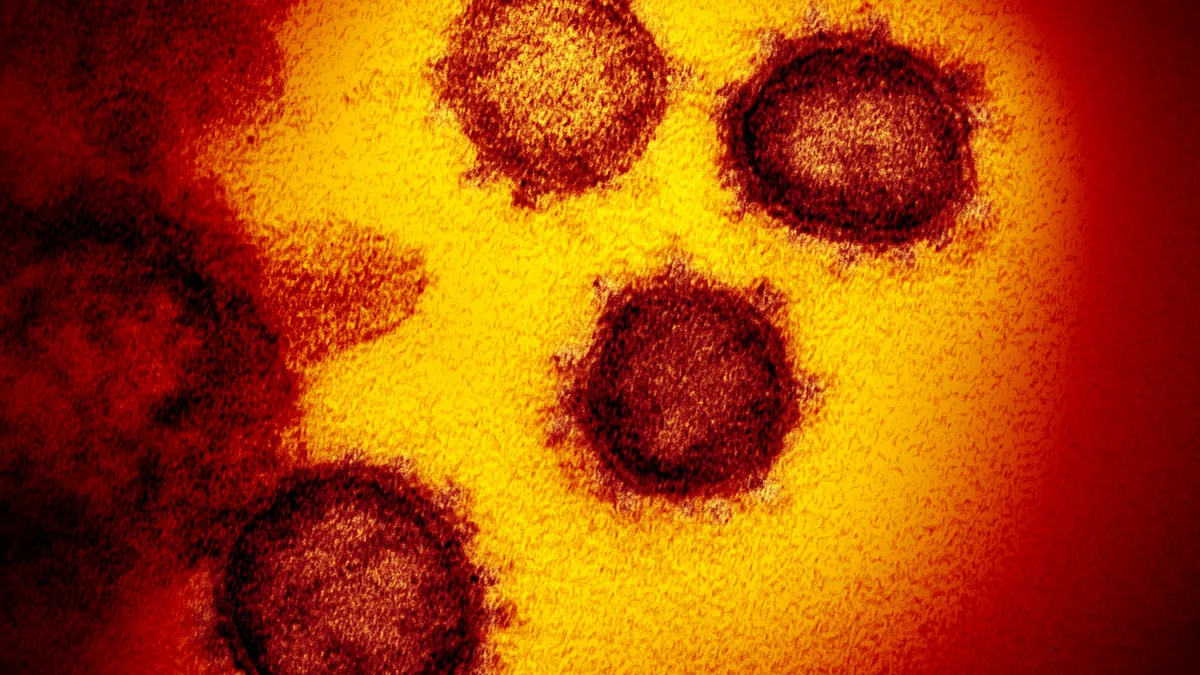Dive Brief:
- CDC Director Robert Redfield on Thursday told the House Committee on Oversight and Reform that some of the reagents essential to conducting coronavirus diagnostic tests "now are in short supply," coming a day after the FDA chief warned of pressures on supply.
- A spokesperson for Quest Diagnostics, which on Monday introduced a new COVID-19 lab-developed test, told MedTech Dive that the company is "managing" its supply of reagents and has "adequate supply at least for the time being." LabCorp, whose own test was launched on March 5, was not immediately available for comment.
- The government is trying to support faster tests from additional manufacturers, with the Department of Health and Human Services on Friday announcing it's funding development of COVID-19 diagnostics from both DiaSorin Molecular ($679,000) and Qiagen ($598,000) that are meant to detect SARS-CoV-2 in about an hour.
Dive Insight:
Redfield's public acknowledgment of the shortage came a day after FDA Commissioner Stephen Hahn's testimony before a House appropriations subcommittee in which he warned of "pressures" on the supply of reagents for commercial and public health labs.
Reagents are essential to prepare the coronavirus diagnostic tests, CDC's Redfield pointed out to lawmakers during Thursday's hearing, though he didn't elaborate on which specific reagents are in short supply.
During testimony before a separate House appropriations subcommittee Wednesday, FDA's Hahn said “there are pressures particularly around RNA” required for COVID-19 testing.
Qiagen, a major supplier of RNA extraction kits, confirmed to MedTech Dive on Thursday that "extraordinary demand for coronavirus testing workflows" is challenging the company's capacity to supply certain RNA kits used for SARS-CoV-2-related LDTs. A spokesman for Qiagen said it is ramping up production at its manufacturing sites in Germany and Spain.
Nonetheless, the American Society for Microbiology, which represents thousands of public health and clinical lab microbiologists, warned "there are limits on how rapidly companies can realistically accelerate production of the necessary reagents” and "increased demand for testing has the potential to exhaust supplies needed to perform the testing itself."
The statement added that it is "deeply concerned" about the reagent shortage and that "as the number of tests increases dramatically over the coming weeks, clinical labs will be unable to deploy them without these critical components."
Redfield said CDC is working with FDA to address issues with the reagent supply chain. An agency spokesperson said FDA is conducting research into potential shortages in the supply chain of lab materials critical to COVID-19 testing, including reagents, extraction kits and swabs, as well as reaching out to original manufacturers of component parts, kit assemblers and distributors.
LabCorp says it's able to perform several thousand tests per day. Counterpart Quest expects to be able to perform tens of thousands of tests a week within the next six weeks. A Quest spokesperson said its COVID-19 test, which detects viral RNA in respiratory specimens, shares "a couple of reagents in common" with the CDC's 2019-nCoV Real-Time RT-PCR Diagnostic Panel.
Reagents qualified by the CDC are being sold through two companies: Integrated DNA Technologies and Biosearch Technologies, while there is only one supplier of genomic RNA, BEI Resources. However, the Quest spokesperson said the company currently has an "adequate supply" of reagents "at least for the time being."
To be sure, Redfield said the reagent issue is one of many challenges, calling out equipment and people as potential limiting factors for labs during Thursday testimony.
The HHS test funding announcements follow an award on Monday to Hologic for $699,000 to accelerate the company's development of the first so-called high throughput COVID-19 diagnostic test capable of processing up to 1,000 tests in a 24-hour period.
"The high throughput platform should happen soon," Redfield told lawmakers on Thursday. BARDA and Hologic expect development to be completed "in a matter of weeks" at which point the FDA will consider granting Emergency Use Authorization for the test.
HHS also announced Friday it's tapped Brett Giroir, head of the agency's Public Health Service who briefly led FDA prior to Stephen Hahn's Senate confirmation, to coordinate diagnostic efforts among CDC, FDA, state and local health authorities, and private and public clinical labs.












